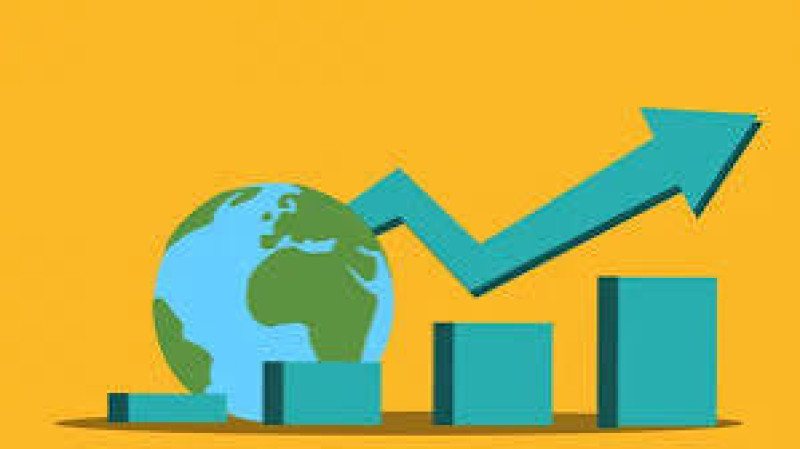- NCP Vows to Contest All 300 Seats in Upcoming Polls |
- Trump's Tariff Hike: How will it affect Bangladesh? |
- Myanmar: UN chief for urgent access as quake toll mounts |
- AI’s $4.8 tn future: UN warns of widening digital divide |
- Volker Turk warns of increasing risk of atrocity crimes in Gaza |
Do economists even matter?
If economists are so smart, why do so many economies suffer?

Two sociologists -- one of them my supervisor and the other a good friend, a professor at the University of Pittsburgh, the other at Penn State University published an important paper titled, “The Ubiquitous Rise of The Economists” in the Journal of Public Policy in 1993. They were looking at the role of economists as policy-makers in South America.
In several post-coup South American countries, economists gained a certain amount of notoriety as policy-makers. Naomi Kline attacks the Chicago Boys, a group of students of Milton Friedman who brought in -- and gave a bad name -- neoliberal, free-market economic policies that gave a shock therapy to Chilean economics as they got a free hand under General Pinochet.
The role of economists in policy-making can be contentious at times and beneficial at others.
In India, amidst the market-friendly Modi economics, one must not overlook that it was Dr Manmohan Singh who, as the Finance Minister in 1991, introduced economic and market reforms, dismantling the License Raj. Later, as Prime Minister (2004–2014), he oversaw the implementation of some of these policies. The benefits of such reforms, which unleashed market forces, led to remarkable economic growth in India, the dividends of which are currently being reaped by the Modi government, reports DT.
If economists are so smart, and the US has plenty of them, why does American economy suffer from time to time. Or why is the British economy is faltering now? The presence of the top economists in itself is no guarantee that their suggestions would be listened to, and the right kind of economists will get the ears of the top politicians.
The US President, Joe Biden, has a Council of Economic Advisers -- an institution established by the US Congress in 1946 --which provides policy inputs. Whether these inputs translate into policies is not always clear. However, it is reassuring to know that policies are not formulated in a vacuum, and there are knowledgeable individuals deliberating, debating, and presenting evidence and data to the US President.
Sometimes economists are not as clear-headed as they are made out to be. Often, they would say on the one hand this would work on the other hand that may work. There is an anecdote -- might be apocryphal -- that soldier turned US president Eisenhour once asked for a one-handed economist!
In Singapore's remarkable economic development, the contribution of economists like Dr Goh Keng Swee, an LSE-trained economist and a confidant of Singapore’s founding leader Lee Kuan Yew, was pivotal. Although Mr Lee studied law at Cambridge and achieved first-class honours, he possessed a keen understanding of economic fundamentals, despite not being an economist himself.
Economists do not have the monopoly over the best economic ideas. No matter what people say about President Biden’s leadership or popularity, American economy has rebounded under his watch.
In Pakistan, when Imran Khan became Prime Minister in 2018, he sought to establish a council of economic advisors akin to those of US presidents. His administration approached some top Pakistani economists in the US, including Atif Mian, a prominent figure based at Princeton University, among others from institutions like Chicago and Harvard. However, when Atif Mian was dismissed due to his Ahmadi sect background, it incited the resignation of two other eminent economists, Dr Rasul from London and Dr Khwaja from Harvard's Kennedy School, in protest against such blatant discrimination and sectarianism.
Bangladesh has its share of several brilliant economists, some of whom have extensive experience with organizations like the World Bank, the IMF, the United Nations, and the ILO.
While some economists are privately consulted by individuals within the government, and there are experienced economists around the prime minister, to my knowledge, there is no institution like the Prime Minister’s Council of Economic Advisers.
Why not harness the expertise of economists such as Ahmed Mushfiq Mobarak at Yale, Syed Akhtar Mahmood formerly with the World Bank, Selim Jahan former Director of the UN Human Development Report Office, or Rizwanul Islam formerly of the ILO, and establish a council of advisers? I am certain there are many others, but I mention these individuals because of my familiarity with their work.
If there are concerns about spending scarce foreign reserves, occasional consultations over Zoom could be arranged, or top officials of the administration could engage with them to discuss policy matters or other pertinent issues. Additionally, Bangladesh possesses numerous talented home-based economists, such as Selim Raihan or Binayak Sen.
While serving on the governing board of the Global Development Networks, a global think tank, I once queried a former World Bank economist about whether Bangladesh could follow the Sri Lankan path. He assured me that such an outcome was unlikely. This individual was closely involved as an economic adviser to the Sri Lankan president at the time.
As we can see, the Sri Lankan economy is making a strong recovery. I am sure the advice of this economist played a role.
As Bangladesh aims to transition into a middle-income economy and faces numerous economic challenges in the short term, it would be prudent to leverage and mobilize the talent pool of economists for national service.
Habibul Haque Khondker is a sociology professor at Zayed University, Abu Dhabi who previously taught at the National University of Singapore.

